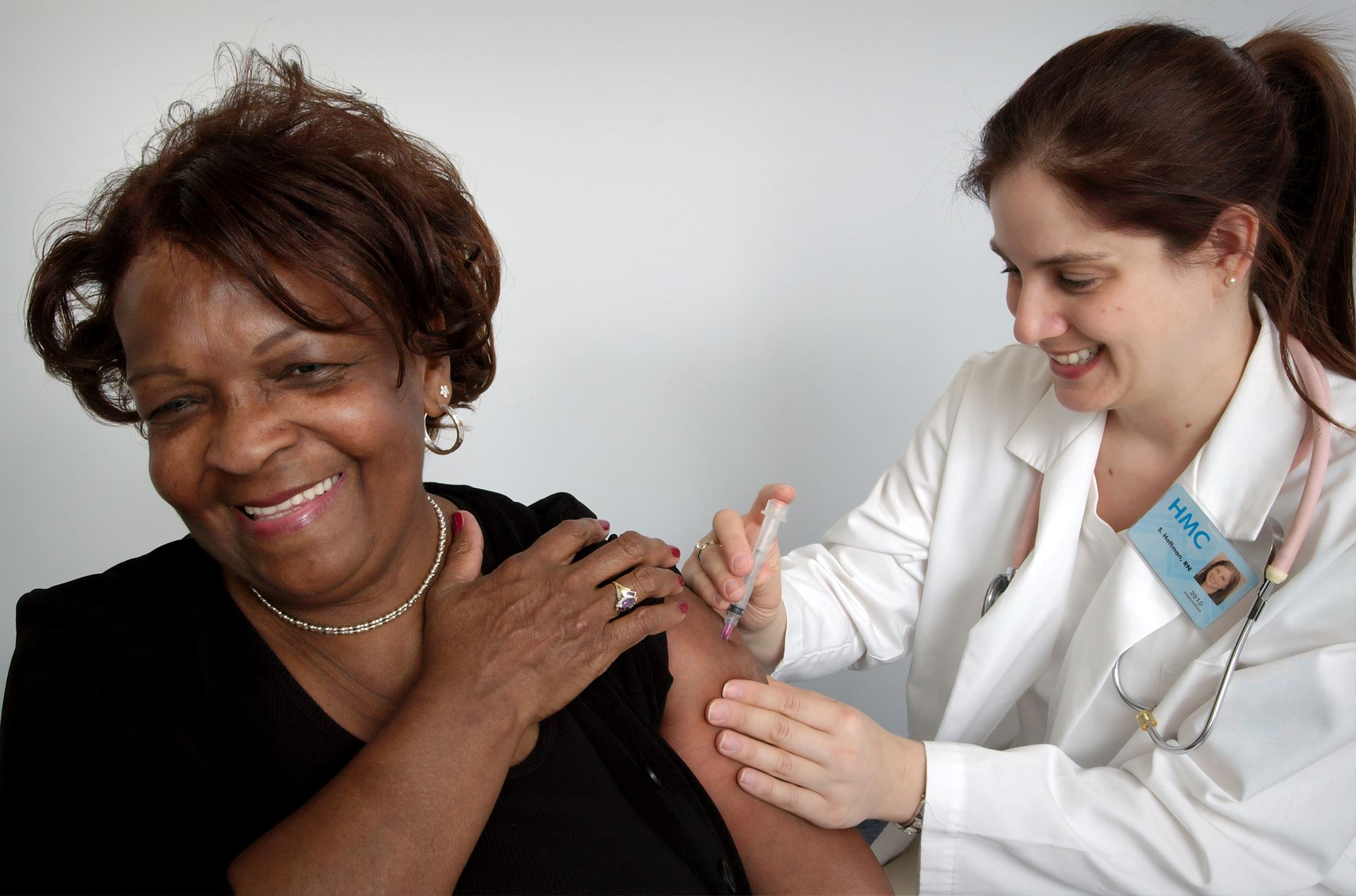Vaccinations
Does Age Affect The Risk Of Flu?
Yes. If you are aged 65 years or over or you are at higher risk
Who is at risk?
- If you are aged 65 years or over or if you are on regular inhaled steroids
- If you have a chronic respiratory disease (including asthma)
- If you have chronic heart disease
- If you have chronic renal disease
- If you are diabetic
- If you have a weak immune system
- If you live in a long-stay residential or nursing home
- If you have a chronic liver disease
- If you are a carer

Do I Need To Be Protected Against Pneumococcal Infection?
Everybody aged 65 and over should now be immunised to help protect them against pneumococcal infection which can cause diseases such as pneumonia, septicaemia (blood poisoning) and meningitis. Please phone the surgery during September to make an appointment if the above applies to you.
Shingles Vaccination
The shingles vaccine helps protect against shingles. It's recommended for people at higher risk from shingles, including all adults turning 65, those aged 70 to 79 and those aged 50 and over with a severely weakened immune system.
What the shingles vaccine is for
Shingles is a common condition that causes a painful rash. It can sometimes lead to serious problems such as long-lasting pain, hearing loss or blindness.
You're more likely to get shingles, and it's more likely to cause serious problems, as you get older or if you have a severely weakened immune system.
The shingles vaccine helps:
- reduce your chances of getting shingles
- reduce your chances of getting serious problems if you do get shingles
Who should have the shingles vaccine
The shingles vaccine is recommended for some older adults and people with a severely weakened immune system.
People who turn 65 on or after 1 September 2023 - From 1 September 2023, you're eligible for the shingles vaccine when you turn 65. You'll be offered 2 doses of the vaccine. These are given between 6 and 12 months apart. You'll remain eligible until your 80th birthday.Information:
If you turned 65 before 1 September 2023, you'll be eligible for the shingles vaccine when you turn 70.
People aged 70 to 79 - Everyone aged 70 to 79 is eligible for the shingles vaccine. Depending on the type of vaccine you have, you'll have either 1 dose or 2 doses (given between 6 and 12 months apart). Contact your GP surgery if you missed your vaccine. You're eligible up until your 80th birthday.
People aged 50 and over with a severely weakened immune system - You're eligible for the shingles vaccine if you're aged 50 or over and you're at higher risk from shingles because you have a severely weakened immune system.
This includes:
- some people with blood cancer (such as leukaemia or lymphoma)
- some people with HIV or AIDS
- some people who've recently had a stem cell transplant, radiotherapy, chemotherapy or an organ transplant
- people taking certain medicines that severely weaken the immune system
You'll be given 2 doses of the shingles vaccine. These are given between 8 weeks and 6 months apart.
Ask your GP or care team if you're not sure if you're eligible for the shingles vaccine.
Important
You can get shingles more than once, so it's important to get vaccinated even if you've had shingles before.
Who cannot have the shingles vaccine
Most people who are eligible for the shingles vaccine can have it.
You only cannot have the vaccine if you've had a serious allergic reaction (anaphylaxis) to a previous dose of the vaccine, or an ingredient in the vaccine.
One of the shingles vaccines (called Zostavax) contains a weakened version of the virus that causes shingles. This vaccine is not suitable if you have a severely weakened immune system so you'll be given a different one (called Shingrix) instead.
Getting vaccinated if you're unwell
If you have a high temperature or feel too unwell to do your normal activities, wait until you're feeling better before having the vaccine.
Page created: 25 October 2023